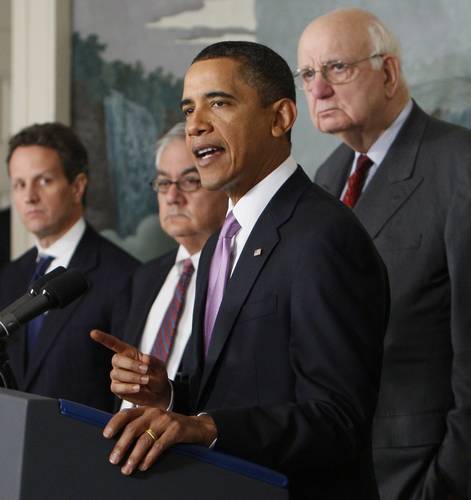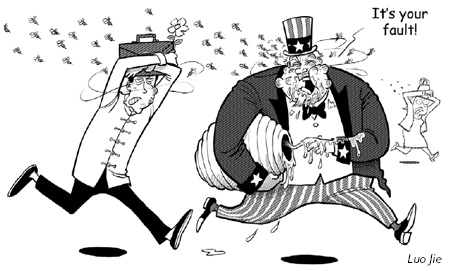China threatens US arms companies
By Kathrin Hille in Beijing and Patti Waldmeir in Shanghai
Published: January 30 2010 12:45 | Last updated: January 31 2010 06:00
China threatened to impose sanctions on US arms firms and cut cooperation with Washington unless it cancels a $6.4bn arms sale to Taiwan, in an unprecedented move signalling Beijing’s growing global power.
Although Beijing ritually protests US weapons sales to the island, it has not previously targeted the companies involved in the trade. Although the US restricts arms sales to China, a number of the companies that would supply systems involved in the new Taiwan package, which include Boeing, United Technologies, Lockheed Martin and Raytheon, could face pressure in other business areas.
Boeing, in particular, has been counting on China sales of commercial aircraft in its battle with Airbus. Boeing, which warned on Friday that it expects revenue to fall this year, declined to comment on the Chinese threat. Beijing centrally manages aircraft purchasing and political factors have played a role in the past.
The Chinese Foreign Ministry said Beijing would partially halt military exchange programmes and vice-ministerial talks on strategic security, arms control and anti-proliferation, scheduled to be held soon.
The US should “truly respect China’s core interests and major concerns, and immediately rescind the mistaken decision ... in order to avoid damaging broader China-US relations”, Yang Jiechi, the Chinese foreign minister, was reported by the official Xinhua news service to have said while travelling in Cyprus.
Beijing summoned Jon Huntsman, the US ambassador to China after the arms sale announcement. Beijing has suspended military exchanges and other dialogues after past arms sale announcements as well.
The State Department this weekend defended the arms sale plan. “Such sales contribute to maintaining security and stability across the Taiwan Strait,” said Laura Tischler, a State Department spokeswoman.
The Obama administration on Friday said it had notified Congress of a plan to sell Taiwan 60 Black Hawk helicopters, worth $3.1bn, 114 Patriot missiles, worth $2.8bn, two Osprey mine-hunting ships and tracking equipment. The sale will proceed unless US lawmakers object within 30 days.
It comes as relations between Washington and Beijing have been tested by tensions at last month’s Copenhagen climate summit, a Chinese missile test and the recent dispute over cyberattacks on Google.
China claims sovereignty over Taiwan although the two have been separately governed for most of the last century. Although cross-strait tension has receded since Ma Ying-jeou assumed the presidency in Taiwan in 2008, China refuses to drop its threat to attack the island should it formalise its de facto independence and has more than 1,000 missiles pointed at Taiwan.
China’s shrill reaction came despite the fact that Friday’s notification was only the implementation of a pledge made in April 2001 by George W Bush, then the US president.
Beijing’s harsh tone surprised some because the congressional notification excluded two key components long pursued by Taiwan: design work for diesel-electric submarines, also originally pledged by Mr Bush in 2001, and advanced F-16 fighter aircraft, sought by Taipei more recently.
Chinese media and bloggers have recently opened debate about other avenues of retaliation against US arms sales to Taiwan. The latest package gives China an excuse to step up its own arms modernisation programme including missile tests, said Jin Canrong, an international relations expert at Renmin University in Beijing.
A commentary on state-run China Daily’s website said “The sale is a wrong decision, which not only undermines China’s national security interests and her national unification cause, but also once again hurts the national feelings of the Chinese people.”
The warnings indicate that Taiwan, which has long been the most sensitive issue in US-China relations, could prove at least as disruptive in the future despite the détente between Taipei and Beijing. Beijing’s hard line showed that China saw the détente as a chance to push Washington to finally reduce military cooperation with Taipei over time, a trend China hoped to achieve ever since it took up diplomatic ties with the US in 1979.
http://www.ft.com/cms/s/0/6fae2aca-0d9a-11df-ae52-00144feabdc0.html






